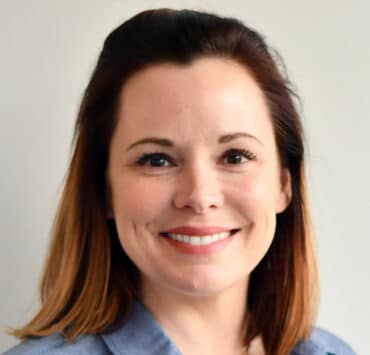When I tried to reach Shelu Bhandari to talk about her work as senior director of supply chain at Ann & Robert H. Lurie Children’s Hospital of Chicago, the call went straight to voicemail. Five minutes later, she called back with an explanation.
A medical supply company had just issued a voluntary recall for the premoistened antiseptic swabs used to disinfect patients’ skin prior to medical treatment. Lurie Children’s uses about forty thousand swabs per year. Bhandari and her team—like all other healthcare supply chain teams in the country—were racing to find an alternative solution.
It’s a look into the new normal ushered in by the global COVID-19 pandemic. Bhandari and her team have encountered challenges related to backorders, killed orders, recalls, discontinuations, shortages, and logistical delays, with more issues seeming to emerge each day.
“This is an era that exposes any slight weakness in your hospital’s supply chain, and it’s more important than ever to be diligent, and anticipate to get ahead of supply issues, as much as possible,” she says.
Most health systems have a dozen or more substitutes on any given day, and alternative products often require a change in clinical practice. To address the problem, dedicated members of Bhandari’s procurement team work overtime to partner with distributors, discover potential shortages, get extra products into storage, and find options from lesser-known suppliers.
Some organizations in other industries can limit services or wait for supply chain issues to resolve, but Lurie Children’s Hospital enjoys no such luxury. Each year, its 1,800 physicians and care providers treat more than two hundred thousand individual patients aged twenty-one and under, each of whom needs to receive quality care in routine and emergency situations alike.
“This is an era that exposes any slight weakness in your hospital’s supply chain, and it’s more important than ever to be diligent and anticipate to get ahead of supply issues, as much as possible.”
Shelu Bhandari
Founded in 1882, Lurie Children’s has become one of the best pediatric hospitals in the country, and the only hospital in Illinois ranked by U.S. News & World Report in all ten pediatric specialties. It’s the pediatric teaching arm of Northwestern University’s Feinberg School of Medicine and has a research center devoted to pediatric diseases.
The organization has made some significant changes in recent years. Lurie Children’s was once called Children’s Memorial and located in Chicago’s Lincoln Park neighborhood. It’s since moved downtown to strengthen its relationship with Northwestern, create better synergies, and expand into new communities. Bhandari began her supply chain career at Rush University Medical Center, then worked in KPMG’s healthcare practice for two years before joining Lurie Children’s Hospital during the pandemic in June 2020.
Since her arrival, she’s worked to assess all parts of internal procurement, logistics, and supply chain operations. After an initial review, Bhandari and her colleagues identified one key bottleneck at the hospital—an inefficient and problematic inventory management system. Inaccurate data overlayed on highly technical point-of-use inventory management systems resulted in failed orders and repeat problems. Bhandari wanted to recommend a total replacement, but encountered resistance due to the hospital’s heavy investment in the legacy automated systems.
The new leader took a step back and engaged KPMG to examine what was failing. “We had essentially thrown a fancy, tech-laden solution at a problem without really understanding the symptoms. It was time to course-correct, no matter how much it hurt,” she says.
The study validated Bhandari’s hypothesis and got her the buy-in to implement a counterintuitive system. Her team recommended a simple and manual Kanban system across supply rooms, surgical cores, cath labs, and off-site clinics. The no-frills, low-tech solution is “fast, accurate, and low cost.” And most importantly, it gets the job done.
“We had essentially thrown a fancy, tech-laden solution at a problem without really understanding the symptoms. It was time to course-correct, no matter how much it hurt.”
Shelu Bhandari
These early wins helped Bhandari and her team demonstrate the value in their approach, leaving no stone unturned in an ongoing quest for process improvement. “These trying times have highlighted the value of streamlined supply chains,” she says. “It is more important than ever to work towards improving processes so we can focus on the critical issues at hand.”
Bhandari knows simple questions with simple solutions can lead to big results. She discovered the hospital was paying in the mid-six figures to store large inventory management systems at a location outside the city. The expensive and inefficient solution was in place because no one had stopped to consider the potential roadblocks before deciding to store product at the distant storage facility. Bhandari prioritized dismantling that process to afford the team greater focus on the primary goals: speedy implementation of a simple inventory management solution.
Other critical projects include the transition from a legacy enterprise resource planning (ERP) system to a cloud-based Workday system and other standardizations. Bhandari is restructuring how the organization collects its data to reduce costs and redeploy employees from time-consuming administrative duties to value-added tasks. Automated solutions like the Global Healthcare Exchange LLC (GHX) and an integration between the ERP system’s item master and the Lurie Children’s electronic medical records system, Epic, will enable faster decision-making and help the hospital get the most out of its new setup.
Bhandari’s colleagues outside the hospital admire her approach to the transition. “Shelu proactively brought GHX, Workday, and KPMG to the table to start the scoping process early,” says Michael I. Bishop, vice president for provider sales at GHX. “This allowed each party to align on the common objectives Lurie Children’s wanted to achieve as they migrated to Workday’s enterprise management cloud. This has been critical in setting them up for a successful cloud transformation.”
Keeping Lurie Children’s Hospital stocked, supplied, efficient, and ready to meet its mission is a big job that requires a strong and dedicated team. Bhandari’s four direct reports—Anthony Moran, Katelyn Storton, Elizabeth Diebolt, and Kori Pomerantz—bring a high level of training, professionalism, passion, and experience to all they do. Their primary desire is to fix problems that arise to ensure clinicians can treat young patients needing care.
Those working on Bhandari’s team don’t usually interact directly with the patients that come through their doors, but their work behind the scenes reduces employee burnout, increases quality of care, and leads to better outcomes.
Lurie Children’s is committed to providing high-quality care, serving its communities, addressing health inequity, and pursuing breakthroughs in research. Earlier this year, its radiology and orthopedic surgery specialists developed an innovative and minimally invasive procedure to treat unicameral bone cysts.
Teams working in the hospital have completed one hundred heart transplants since 2018. Others in the organization have expanded mental health services, led vaccination events, and formed new partnerships to address the needs of children and their families in Chicago. A strong supply chain helps make it all possible.
Global Healthcare Exchange (GHX) pioneered healthcare’s largest cloud-based supply chain network more than twenty years ago, which today connects thousands of healthcare providers, suppliers, distributors and other industry stakeholders. By automating key business processes and translating evidence-based data into meaningful action, GHX helps simplify the patient-centered business of healthcare. Its data-fueled platform of technology and services helps healthcare move faster, operate more intelligently and improve clinical, financial and operational outcomes. Every year, GHX facilitates hundreds of billions of dollars in global transactions and removes more than a billion dollars of cost from the healthcare industry.


